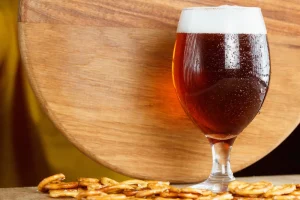
Depression can also be directly caused by alcohol in the case of a substance-induced disorder. Children who were abused or raised in poverty appear to be more likely to get both conditions. can drinking alcohol cause panic attacks It’s not always clear if depression makes you drink or vice versa. Studies of twins have shown that the same things that lead to heavy drinking in families also make depression more likely.
Bipolar Disorder in Adults: Understanding and Management
- Then, try distracting yourself to help take your mind off how you feel.
- Women are more than twice as likely to start drinking heavily if they have a history of depression.
- If you have depression and anxiety and want to drink alcohol, there are some considerations.
- Some researchers have suggested that the effects of psychotherapy may account for some of the pill placebo response observed in medication studies.
Your symptoms can range from mild to severe and can include drinking more than you meant to, having trouble cutting back on drinking when you try, or being unable to quit drinking even though it’s causing problems in your daily life and relationships. If you or your loved ones are worried about your alcohol use or think you have alcohol use disorder, talk to your doctor or a mental health specialist about treatment options. This is good news, because most people with anxiety disorders do not report drinking to cope with their symptoms, but it also raises questions. For example, why do some people with anxiety problems drink to cope and others do not? Also, if this population has no increased risk for AUD, how is that consistent with the shared neurobiology thesis? Perhaps currently unknown factors—cultural, psychological, or biological—protect these biologically vulnerable individuals by discouraging drinking to cope.
- Kennedy suggests that treatment options can vary depending on the severity of your condition.
- Drinking alcohol excessively can also get in the way of other activities, your relationships, and your self-esteem, which can further affect your mental health.
- Recognizing the symptoms of depression and alcohol use disorder can help ensure that you get the right diagnosis and treatment.
- Randomized trials are arduous and expensive, are more suited to short-term interventions and outcomes over weeks or months rather than years, and may not select representative samples (14).
- When you have healthy habits in place to cope with unwanted feelings, you’ll probably find it easier to use these strategies to push back against distressing emotions you might experience while drinking.
What to Do About Depression and Alcohol Misuse
Physical symptoms can include changes in appetite or weight (usually decreased, but sometimes increased), lack of energy, low sex drive and disturbed sleep. Signs to look out for include things like continuous low mood or sadness, feeling hopeless and helpless, having no motivation or interest in things, and — for some https://ecosoberhouse.com/article/why-we-have-a-fear-of-being-sober-5-fears-about-it/ people — thoughts about harming themselves. If you need urgent help with your mental health, you don’t have to struggle alone. Alcohol affects your brain, making you feel relaxed in a small amount of time. As you drink more, you become intoxicated and unsteady, and you might do or say things you normally won’t.
Prospective relative risk
- It can make social situations easier, and problems seem less daunting.
- As previously mentioned, it is possible that many depressed or anxious alcoholics demonstrate mood or nervousness conditions caused by intoxication or withdrawal from alcohol; these psychiatric states are likely to improve markedly during the first several weeks to 1 month of abstinence.
- Alcohol and depression are connected in several ways, and the two often feed off of one another.
The review authors reported that reducing alcohol intake could improve people’s self-confidence, physical and mental quality of life, and social functioning. According to a 2017 review that looked at 63 studies, reducing alcohol intake resulted in improvements in both depression and anxiety. While alcohol is a relaxant and can make you feel good at first, chronic alcohol use can cause mental health issues. This is characterized as the impulsive stage of addiction because the goal of increasing pleasure, rather than avoiding or escaping discomfort, motivates seeking alcohol or other drugs. Alcohol may be a form of self-medication for people with depression.
However, for the best results, your doctor will likely treat them together. It’s often a lifelong commitment, but one that can improve your life, health, and well-being in the long term. Additionally, panic attacks can be triggered because of the effect alcohol has on GABA, another brain chemical that normally has a relaxing effect.

Nearly one-third of people with major depression (or major depressive disorder) also have alcohol use disorder. Research shows that depressed children are more likely to have problems with alcohol a few years down the road. Also, teens who’ve had a bout of major depression are twice as likely to start drinking as those who haven’t. And if you start drinking at an early age, your risk of alcohol use disorder is higher. Studies have shown a different trend of alcohol use in people who are diagnosed with generalized anxiety disorder or panic disorder. For many people with these mental health conditions, unhealthy drinking behaviors begin around the same time as the disorder’s symptoms.
Society would have us believe that there’s no better way to unwind after a long day than by drinking a glass of wine, cold beer, or sipping your go-to liquor. But trying to relax with a drink or two may not give you the long-term anxiety relief you want. Talk to your doctor about alcohol consumption before taking any of these medications, as side effects can be harmful or fatal. Alcohol changes levels of serotonin and other neurotransmitters in the brain, which can worsen anxiety. If you have depression and drink too much alcohol, then you may be wondering if there are any treatments or lifestyle changes for someone in your situation.


 НОВОСТИ
НОВОСТИ Half-Life
Half-Life Half-Life 2
Half-Life 2



